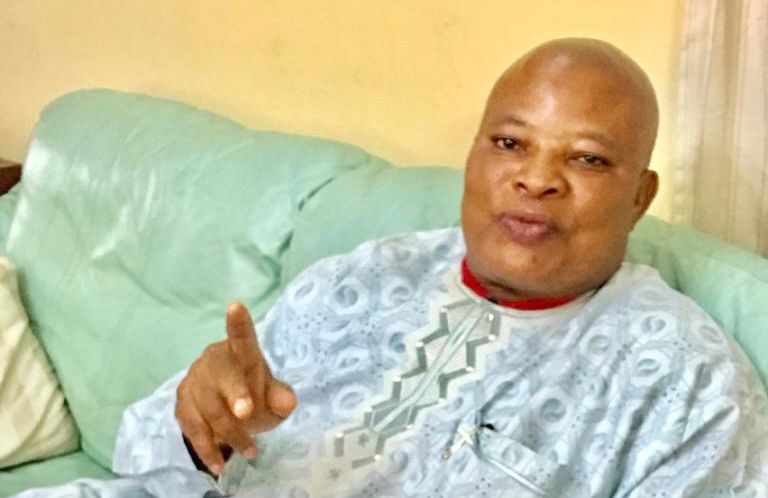The number of Lesbians, gays, bisexuals and transgender (LGBT) persons in Nigeria, though largely undocumented officially, has continued to rise exponentially, especially amongst teenagers, youths and adults. According to several projects related fact finding researches and spontaneous polls conducted in some institutions of higher learning and amongst clusters of young people in social media groups and platforms, this is common everywhere but more pronounced in cities of Lagos, Kano, Port Harcourt, Sokoto, Abuja, Maiduguri, Ibadan, Kaduna and Owerri.
This is even spreading all over the country at a growing rate despite the legal statutes and social responses which have clearly red-flagged the queer preference and defined homosexuality as illegal in Nigeria and punishable by up to 14 years of prison in the conventional court system.
Nigeria is a largely conservative country and the very Western proclivity towards openly embracing gay rights and LGBT penchants is deemed not only as an anathema but also an unacceptable negation and disrespect for the very foundation on the mores and decency which its cultural, religious, traditional and secular communal existence have been built and have continued to thrive over the years.
As Nigeria evolves into a more postmodern and more globalized society, credible findings have revealed that the fundamental threat which this surge in queer attitude poses for its secularity is disturbingly manifest in the deliberate and determined effort by LGBT advocates to take over the political legislative process in its 2023 elections. The basic aim of such financiers is to subsequently secure sufficient representatives in its National Assembly to push for and promulgate the law legalising and legitimizing homosexuality.
In the past, such an attempt was resisted by communities in Kenya through support of Community Leaders and its Government but the Nigerian situation seems different because of the present unholy silence that has greeted many aspirants for senatorial and House of Representative positions of some political parties that have well known LGBT sympathizers and practitioners as their candidates.
This is indeed a worrisome phenomenon which, if allowed to become reality, will not only erode the very fabric of Nigeria’s original existential identity, but would dangerously affect the acceptable balance of decency and straight relationship which have been the hallmarks of majority of traditional families in Nigeria and Africa.
There is no gainsaying the fact that the Nigeria society will be confronted with dire consequences if this queer LGBT advocacy gains traction in its National Assembly, especially when such a law would embolden the gays and lesbians to openly challenge and even violently rubbish any real or perceived rational and normal counter argument against this quite uncharacteristic behaviour in its society.
Furthermore, there is no doubt whatsoever that a law legitimizing LGBT tendencies, would result in uncontrolled homophobia which will radically disrupt peaceful existence and dislocate many straight people, who will be subjected to unprovoked assaults by those gloating to endorse the new legislation on the streets, schools, bars and restaurants, churches and other places where the need to impose the law would be deemed necessary and patriotic.
This sad intent through politics by introducing and sponsoring LGBT members into the National Legislative System of Africa’s most populous Nation will of course come at a great social, existential cost and unleash in its wake, major destructive consequences to all African societies, the Nigerian Nation and most developing communities of the world.
Against the backdrop of anticipated backlash of violent and berserk orgies of unprovoked violence by members of the LGBT community, who had hitherto felt constrained, the need to sensitise the general public through the various channels of communication becomes highly recommended and inevitable especially in recognition of the fact that this behaviour and the attendant defensive fightback, will definitely escalate, if such is not checked at this 2023 election period in Nigeria.
All well-meaning Nigerians must act swiftly at this point of the electoral and voting process where all the gains already achieved from the existing bill prohibiting and stipulating penalties for such queer practices can be reversed if they allow the pro-gay and LGBT sympathizers to dominate the National Assembly with their presence as elected Representatives as they would have a voice on the floors of the two parliaments to destroy its moral standards and religious beliefs.
The accommodation, maturity, peaceful, harmonious coexistence and decency which exists in the Nigerian society would all be eroded once the legislation to legalise same sex, LGBT relationship is achieved. A stitch in time saves nine. This is time for Community, Traditional and Religious Leaders to speak up. This is time for the electorate to grow in proper awareness of the consequences of making inappropriate choices.
Already, findings from credible investigations conducted to ascertain the next strategic ploy by the Queer community to accomplish the deliberate agenda of forcing legislation that would favour their cause, indicate that the LGBT Community in Nigeria has set its target at producing twenty House of Representative members from four states, namely: Sokoto, Kano, Rivers and Lagos, during the 2023 election.
In states where party tickets could not be secured in the two major political parties, sympathetic aspirants were sponsored with huge amounts of funding, to join fresh parties with the clear intent to attract followers, which is a major catalyst for political mobilisation in a country like Nigeria. Specifically, Kano, Lagos and Rivers states are said to have recorded huge success for this aspiration. However, the extent to which these plans work out would largely depend on the acceptance or rejection of these aspirants by the level of awareness created for the voting public especially through their Leaders.
By Kwame lbrahim, Ph.D
African Research Institute.
Doctoral School of Safety & Security Services.
Hungary, Budapest




